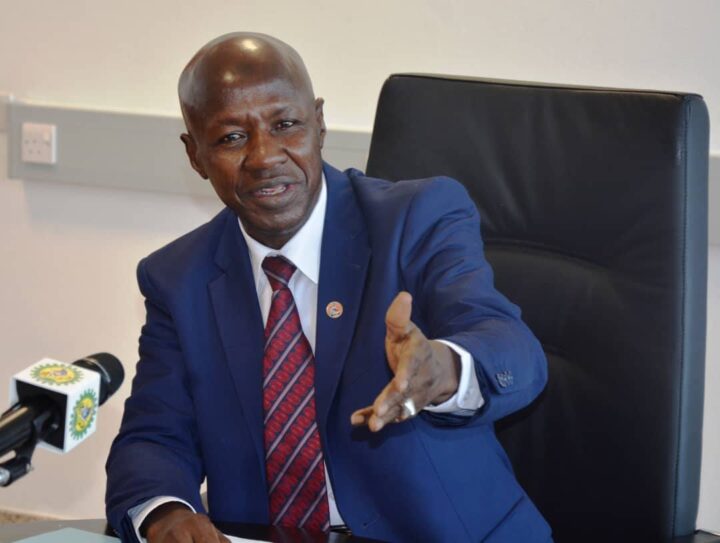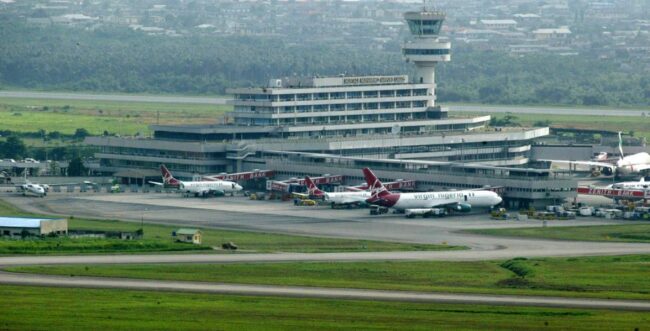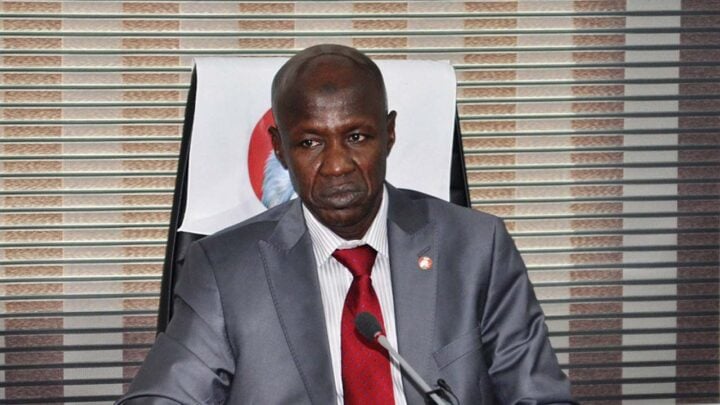Senators must have wondered what was so special about Ibrahim Magu that, despite rejecting him twice, President Muhammadu Buhari insisted he was the ‘chosen one’ to head the Economic and Financial Crimes Commission (EFCC).
Magu was appointed in acting capacity in November 2015, and by March of 2017, the senate, for the second time, asked for a replacement as it wouldn’t approve his appointment. The senate’s rejection followed an accusation of corruption and gross violation of human rights brought against Magu by the Department of State Services (DSS).
The secret police had also accused him of being in possession of “undeclared pieces of property”.
The allegations were, however, denied by Magu.
Advertisement
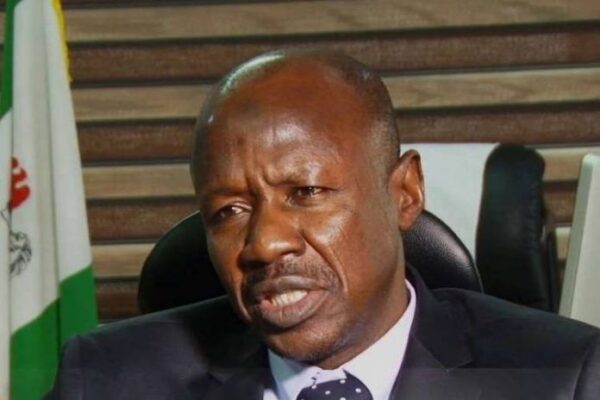
CRACK DETECTIVE WHO WAS FEARED BY CORRUPT OFFICIALS
There couldn’t have been a more fitting replacement for Ibrahim Lamorde than Magu; the crack detective who was feared by many.
Advertisement
Upon the establishment of EFCC in 2003, Magu was seconded to the commission and worked closely with Nuhu Ribadu, the pioneer chairman.
He served as the head of the economic governance section of the operations department. The unit was said to have handled most of the high-profile cases involving politically-exposed persons, including James Ibori, a former Delta governor who served a jail term in the United Kingdom for money laundering.
Magu, who was also involved in the Halliburton bribery scandal, is regarded as one of the toughest interrogators the EFCC has had in its history, such that politicians on the commission’s radar feared being interrogated by him.
“Magu is the toughest interrogator you can ever think of. When he grills suspects, they sweat even in the coldest of rooms. He takes his time, does not rush his questions but he can question you for a whole day and wear you down”, a former governor told TheCable in 2015.
Advertisement
“We used to plead with Ribadu that he should not allow Magu to grill us, that we would rather be grilled by another officer,” the governor added.
It is no wonder that Magu came highly recommended as the “tough man” for the job.
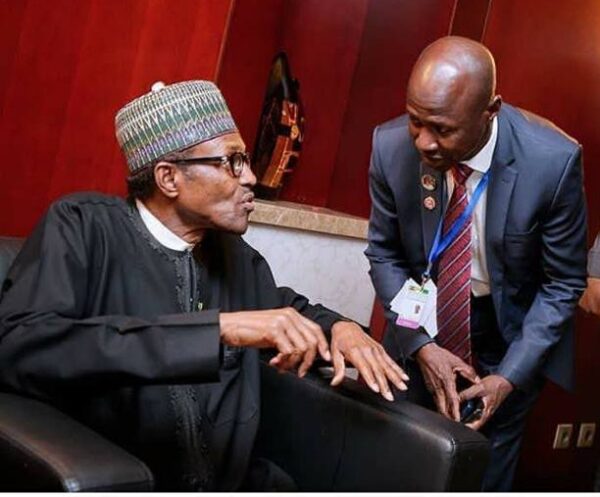
BACKED BY BUHARI
Advertisement
After “failing the integrity test” of the senate, it was expected that the president would send in a replacement, but this never happened.
The argument about if the president can retain an appointee not confirmed by the senate immediately started — but it appeared Buhari was unperturbed about the action of the legislators.
Advertisement
Weighing in at the time, Femi Falana, senior advocate of Nigeria (SAN), argued that the constitution empowers the president to leave Magu as acting chairman of EFCC for as long as possible.
“Section 171 of the constitution has vested the power in the president to appoint any person to that office or act in that office and the duration is not specified. Of all the positions listed there, positions to be occupied by public officers without any reference to the senate – secretary to the government of the federation, permanent secretaries, head of service and heads of extra-ministerial departments like the EFCC and the ICPC,” Falana had argued.
Advertisement
Standing on Falana’s argument, Vice President Yemi Osinbajo explained that the president did not find the indictment by the DSS as a strong reason to replace Magu.
“I don’t think the DSS report is meritorious enough to withdraw his nomination,” the president was quoted to have said.
Advertisement
But in 2018, a federal high court in Abuja ruled that the senate acted within the law when it rejected the nomination.
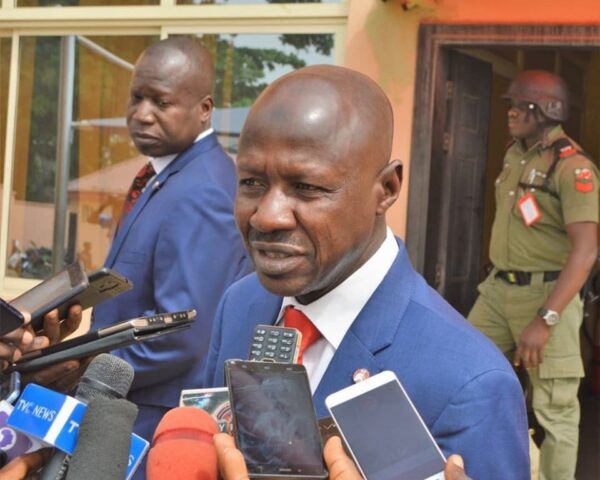
AGAIN, MAGU IS ACCUSED OF CORRUPTION
Just as he battled corruption allegations upon his appointment, Magu, who had now acted as chairman of the anti-graft agency for about five years, was suspended in July 2020– again, on corruption allegations.
His trouble this time followed a memo by Abubakar Malami, attorney-general of the federation (AGF), in which Magu was accused of grave malfeasance.
He was alleged to have mishandled recovered loot and was selling seized assets to associates. He was also alleged to have refused to subject himself to the supervision of the office of the AGF.
All of these allegations were described by Magu as “nonsense”.
“They are nonsense. They are mere trumped-up allegations to tarnish my image and that of the EFCC. I did not steal or divert or convert funds to private use,” Magu said at the time — but a presidential panel headed by Ayo Salami, retired president of the appeal court, had already been tasked to probe him.
Mohammed Umar, the agency’s director of operations, had also been named acting chairman pending the conclusion of the investigation of Magu.
In November, the panel found Magu guilty and recommended to the president that he should be sacked as EFCC boss. It was later revealed that the president had since 2018 ordered DSS to investigate Magu.
Amid the eventual probe in 2020 by the Salami-led panel, the president said he gave the order to the panel because of “serious allegations” against the anti-graft agency.
The journey at the EFCC came to an end for Magu, a commissioner of police, on Tuesday when the president asked the senate to confirm Abdulrasheed Bawa, Lagos zonal head of the anti-graft agency, as the substantive chairman.
Add a comment

